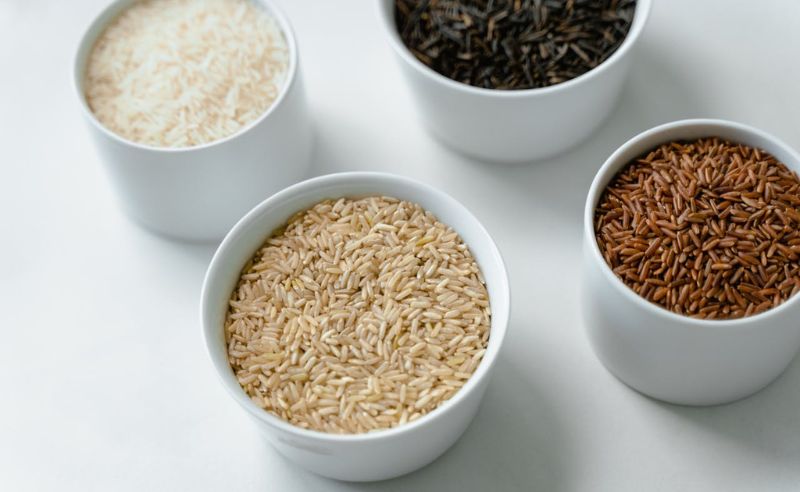Industries and Sectors Using Kraft Drums

Known for their durability and strength, kraft drums have become an indispensable solution for storage and transport in various industries.
Made from tough, environmentally friendly materials, these containers not only offer effective protection but also meet the most stringent environmental and safety standards.
Kraft drums in the chemical industry
In the chemical industry, kraft drums are essential for the safe handling of chemicals, from acids to solvents. Their ability to withstand corrosive materials and their compliance with international standards make them a reliable choice for preventing spills and environmental contamination.
Personnel safety and environmental protection are the main concerns that these drums help to mitigate.
Some of the products and categories:
- Essential chemicals (acids, bases, solvents and inorganic chemicals);
- Organic chemicals (organic solvents, oils and organic compounds);
- Paints and coatings (paints, enamels, varnishes and other coating products);
- Adhesives and sealants (industrial adhesives and sealants);
- Dyes and chemical ingredients (industrial dyes and other chemical ingredients used in various applications);
- Cleaning products and detergents (chemicals used in the manufacture of cleaning products and detergents);
- Agrochemicals (fertilisers, pesticides and other agrochemicals);
- Water treatment products (chemicals used in water treatment, such as disinfectants and coagulants);
- Fine chemicals (high purity chemicals used in the pharmaceutical and research industry).
Kraft drums in the beverage industry
The beverage industry uses kraft drums to preserve the quality and taste of products such as wines, beers and juices. These drums protect beverages from light and oxidation, ensuring that the final product reaches the consumer with all its organoleptic characteristics intact.
The versatility of these drums allows them to be used for both fermentation and transport of beverages.
We list some of the products that benefit from these containers in the beverage sector:
- Wines and spirits (storage and transport of wines, spirits and distillates);
- Juices and concentrates (for packaging natural juices and concentrates);
- Non-alcoholic beverages (storage and transport of soft drinks, isotonic drinks, flavoured waters and other non-alcoholic beverages);
- Spirits (whisky, rum and vodka are often packaged in these containers);
- Bulk products (bulk ingredients used in the production of beverages, such as sugar, syrup and extracts);
- Craft beer (craft breweries opt for these containers for packaging their beers).
Kraft drums in the pharmaceutical industry
Given the sensitivity of pharmaceuticals, kraft drums provide a packaging solution that maintains the integrity of the contents.
These containers are crucial for the safe transport of medicines, vaccines and other medical supplies, ensuring they comply with hygiene and safety regulations and preventing cross-contamination during storage and distribution.
We list some of the products and categories in which kraft fibre drums are used in this industry:
- Pharmaceutical chemicals (storage of chemicals used in the manufacture of medicines, active ingredients and pharmaceuticals);
- Bulk products (storage and transport of bulk ingredients such as powders, granules and chemicals);
- Biological products (storage and transport of vaccines, serums and other biological products);
- Liquid products (storage of pharmaceutical solutions, suspensions and liquids, especially where protection against light and moisture is required);
- Natural and herbal products (natural products and herbal supplements);
- Veterinary products (storage of medicines and pharmaceuticals intended for veterinary use);
- Samples and tests (for the transport of samples and laboratory tests).
Kraft drums in the food and agri-food industry
Kraft drums also play a key role in the food and agri-food industry. They are used to transport everything from grains and spices to fruit and processed products, providing an effective barrier against contaminants and external factors that could compromise food quality.
The neutrality of the material ensures that there is no transfer of unwanted flavours or aromas.

Here, we highlight some of the products and categories that take advantage of this packaging in these sectors:
- Oils and fats (storage and transport of vegetable oils, olive oil, sunflower oil and edible fats);
- Dry products (flour, rice, sugar, coffee, cereals and other dry products);
- Bulk products (grains, pulses, nuts and seeds);
- Dairy products (milk powders, powdered milk products and other dairy products);
- Food chemicals (chemical ingredients used in food processing, such as additives and preservatives);
- Honey and bee products
- Bakery and confectionery products (bakery and confectionery ingredients and finished products, such as flour, sugar and biscuits).
Waste industry
In waste management, kraft drums facilitate the transport and safe disposal of waste, minimising environmental impact. They are a preferred choice for industrial and municipal waste management due to their ability to be recycled or reused, which is essential in sustainable waste management strategies.
Here are some of the ways in which kraft fibre drums benefit the waste industry:
- Hazardous waste storage (safe storage of hazardous waste, such as corrosive chemicals, waste oils, solvents and other hazardous materials);
- Waste collection and transportation (for the collection and transportation of waste from generation facilities to treatment and disposal facilities);
- Laboratory waste (for the safe disposal of chemical waste and expired or unused products);
- Toxic and chemical waste (industrial chemicals, expired medicines and discarded electronic products are stored and transported in these containers);
- Liquid waste recycling (such as recovery of used oils and solvents);
- Temporary storage (Waste management centres use these containers for temporary storage of waste prior to processing or disposal).
Conclusion
Kraft drums represent a packaging solution that stands out for its functionality and sustainability in multiple industry sectors. Their use not only improves efficiency in product handling and transportation, but also contributes significantly to environmental sustainability initiatives.
As industries continue to focus on reducing their environmental impact, kraft drums are establishing themselves as a packaging option that offers safety, efficiency and environmental friendliness.
The adaptability and advantages of these drums underscore their importance in the modern supply chain, making their use increasingly indispensable in a world that values sustainability.
FAQs
What characteristics make kraft drums a sustainable option?
Kraft drums are recyclable and biodegradable, making them a green option for companies looking to reduce their environmental impact and promote sustainable practices.
Are kraft drums moisture resistant?
Kraft drums are designed to have some moisture resistance, although they are not completely waterproof. They can be treated with special coatings to improve their resistance to water and other liquids, making them suitable for specific uses requiring this property.
How do kraft drums compare to other types of containers in terms of cost?
Generally, kraft drums are cheaper than other types of containers, such as metal or plastic. Their low cost is due to the availability and price of the base material, kraft paperboard, as well as the efficiency of their production.
Can kraft drums be customised?
Yes, kraft drums offer excellent customisation options. They can be printed with logos, handling instructions, product information, and other relevant data, which is an advantage for companies looking to strengthen their brand image through their packaging.
What is the shelf life of a kraft drum?
The shelf life of a kraft drum depends on several factors, including storage conditions and the nature of the contents. However, they are generally designed to be quite durable and can last for several months under the right conditions.
Are there any legal restrictions or specific regulations for the use of kraft drums?
Restrictions and regulations depend on the country and the type of product being stored or transported in kraft drums. In general, they must comply with local and international packaging regulations, especially if they are used for chemicals, pharmaceuticals or foodstuffs.
You may also be interested in:
